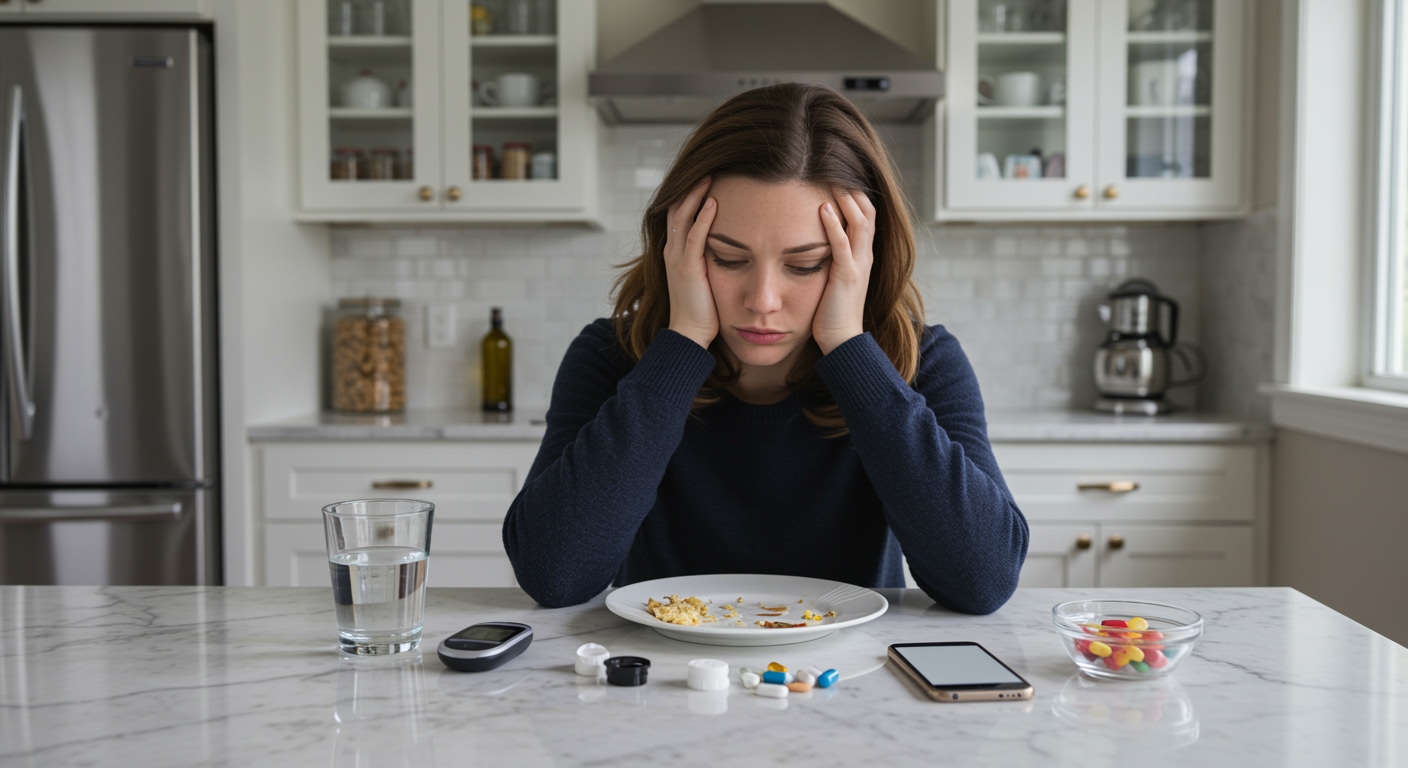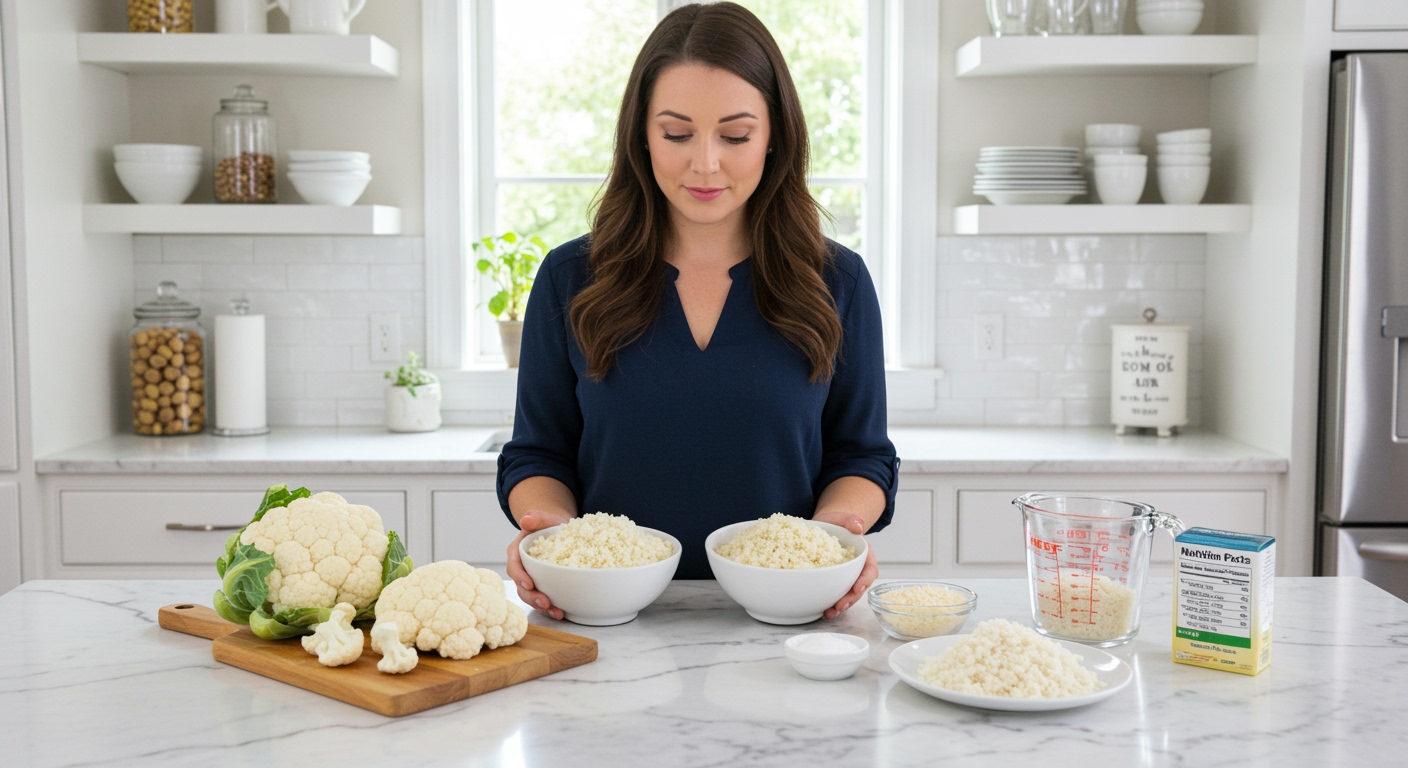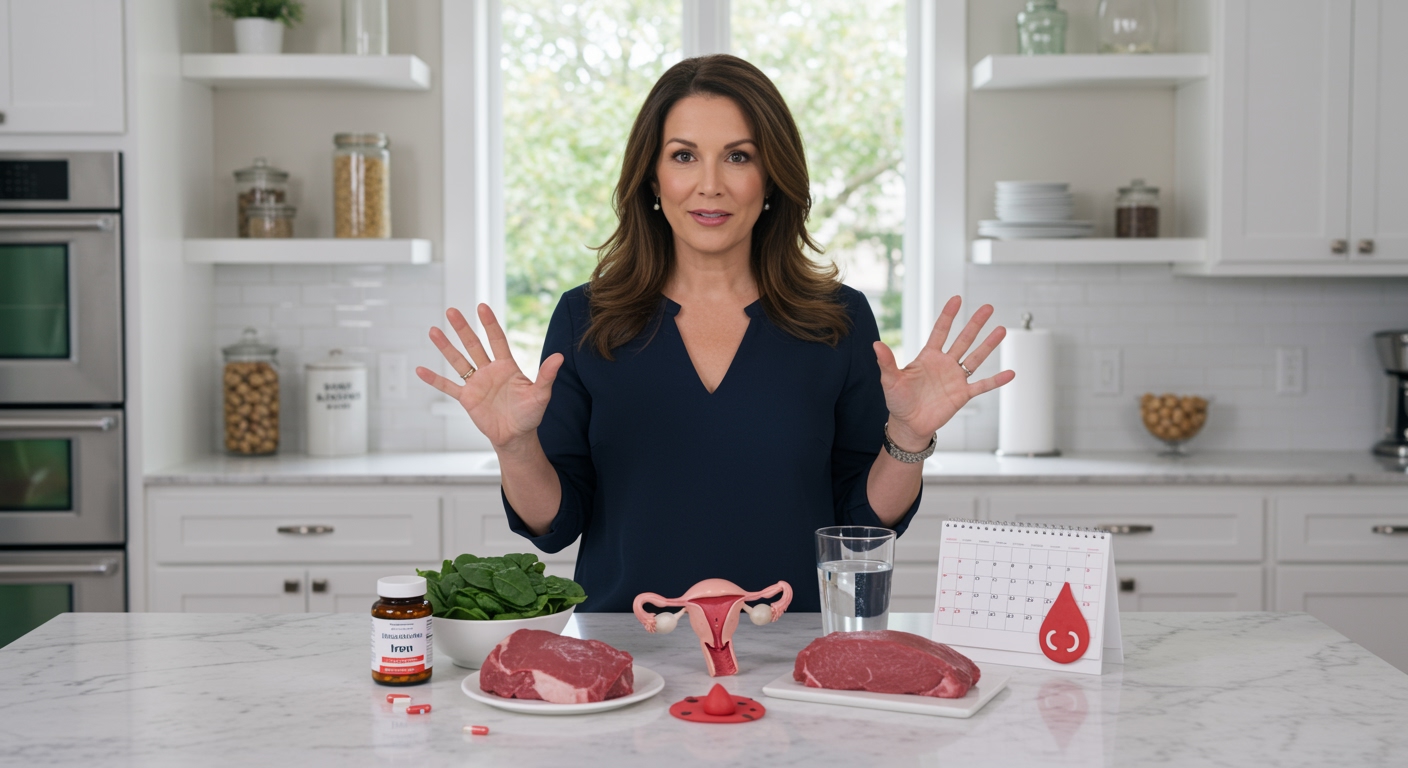✪ Key Takeaway: PCOS causes constant fatigue after meals due to insulin resistance, blood sugar spikes, and hormonal imbalances.
Introduction
You finish eating and suddenly feel like you need a three-hour nap.
This crushing fatigue after meals might seem normal, but when you have PCOS, there are specific reasons why your energy crashes so dramatically.
Hi, I’m Abdur, your nutrition coach and today I’m going to explain why PCOS causes constant fatigue after meals and what you can do about it.
Why Does PCOS Make You So Tired After Eating?
PCOS creates a perfect storm of hormonal chaos that directly impacts your energy levels after meals.
The primary culprit is insulin resistance, which affects up to 70% of women with PCOS.
When you eat, your body struggles to move glucose from your bloodstream into your cells where it belongs.
This means your cells are literally starving for energy even though your blood sugar might be high.
Your pancreas responds by pumping out more insulin, creating a cascade of inflammatory reactions throughout your body.
These inflammatory signals trigger the release of cytokines, which are chemical messengers that make you feel tired and sluggish.
Additionally, elevated androgen levels in PCOS can disrupt your sleep quality, making you more susceptible to post-meal crashes.
✪ Fact: Women with PCOS have 35% higher rates of chronic fatigue syndrome compared to women without the condition.
What Happens To Your Blood Sugar During Meals?
Your blood sugar response to food is dramatically different when you have PCOS.
Normal individuals experience a gentle rise and fall in blood glucose after eating, but PCOS creates extreme spikes followed by crashes.
These spikes can reach levels 40-60% higher than what healthy individuals experience with the same meal.
The crash that follows is equally dramatic, often dropping your blood sugar below baseline levels within 2-3 hours.
This rollercoaster effect triggers your body’s stress response system, flooding you with cortisol and adrenaline.
When these stress hormones eventually wear off, you experience what researchers call reactive hypoglycemia.
This condition leaves you feeling exhausted, brain-fogged, and craving more food to restore your energy.
✪ Pro Tip: Monitor your energy levels 1-3 hours after meals to identify which foods trigger your worst crashes.
Which Foods Make PCOS Fatigue Worse?
Certain foods act like energy vampires for women with PCOS, draining your vitality within hours of eating.
Refined carbohydrates like white bread, pasta, and sugary snacks create the most dramatic blood sugar spikes.
These foods require massive amounts of insulin to process, overwhelming your already insulin-resistant cells.
Processed foods containing high fructose corn syrup are particularly problematic because they bypass normal satiety signals.
Large meals in general can trigger fatigue because they require significant digestive energy and create larger glucose loads.
Surprisingly, even healthy foods like fruits can cause crashes if eaten alone without protein or healthy fats to slow absorption.
The timing of your meals also matters – eating late at night disrupts your natural circadian rhythms and worsens morning fatigue.
✪ Note: Even healthy whole grains can trigger fatigue if your insulin resistance is severe enough.
How Can You Beat Post-Meal Fatigue With PCOS?
The most effective strategy is to create balanced meals that prevent blood sugar spikes in the first place.
Start every meal with protein – aim for 20-30 grams to slow glucose absorption and maintain steady energy levels.
Add healthy fats like avocado, nuts, or olive oil to further stabilize your blood sugar response.
Choose complex carbohydrates with high fiber content, which release glucose slowly into your bloodstream.
Eat smaller, more frequent meals rather than three large ones to avoid overwhelming your insulin system.
Take a 10-15 minute walk after eating to help your muscles use glucose more efficiently.
Consider supplements like chromium, magnesium, or inositol, which can improve insulin sensitivity and reduce post-meal crashes.
✪ Pro Tip: Eating protein first, then vegetables, then carbs can reduce blood sugar spikes by up to 40%.
When Should You See A Doctor About PCOS Fatigue?
Severe fatigue that interferes with your daily activities requires medical evaluation beyond basic lifestyle changes.
If you feel exhausted even after 8-9 hours of sleep, this could indicate underlying thyroid problems or sleep apnea.
PCOS increases your risk of developing type 2 diabetes, which can cause persistent fatigue even with dietary changes.
Depression and anxiety are common with PCOS and can manifest as chronic tiredness and low motivation.
Your doctor may recommend metformin or other medications to improve insulin sensitivity and reduce fatigue.
Blood tests can reveal deficiencies in iron, vitamin D, or B vitamins that commonly occur with PCOS.
Getting proper treatment for PCOS can dramatically improve your energy levels and overall quality of life.
✪ Fact: Up to 60% of women with PCOS also have vitamin D deficiency, which contributes to chronic fatigue.
The Bottom Line
PCOS absolutely can cause constant fatigue after meals due to insulin resistance, blood sugar instability, and hormonal imbalances.
Your energy is not negotiable – it is the foundation of everything else you want to achieve in life.
I would love to hear about your experiences with PCOS fatigue or any questions you might have about managing your energy levels – please share your thoughts in the comments below.
References
At NutritionCrown, we use quality and credible sources to ensure our content is accurate and trustworthy. Below are the sources referenced in creating this article:
- Medical News Today: PCOS and Fatigue: Causes and Management
- PCOS Association: PCOS Fatigue Causes and Treatment Tips
- NCBI: PCOS and Metabolic Dysfunction
- PCOS Nutrition: Understanding PCOS Fatigue





